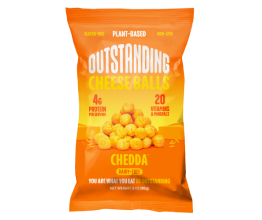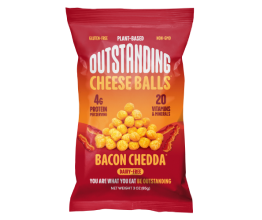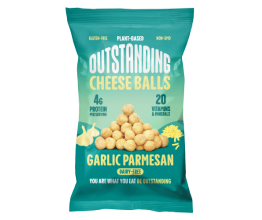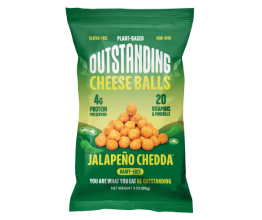5 Small Steps Toward a More Sustainable Lifestyle
Many of us know that cultivating a sustainable lifestyle is beneficial both for us and for our planet as a whole. The problem, however, is that trying to change your lifestyle to be more sustainable can be overwhelming (to say the least).
Making large-scale changes to your lifestyle involves a large amount of time, brainpower, and money. And with so much information on the internet and spreading by word of mouth, where do you even start?
As is the case with many big life changes, it’s best to start small. Instead of trying to change everything at once, choose a few simple but concrete actions that will make a tangible difference. As those actions become habits, you can build on them.
Read on to learn more about what it means to live sustainably and what small but effective actions you can take now to start building a more sustainable lifestyle overall — without breaking the bank.
What Does It Mean to Live Sustainably?
A sustainable lifestyle shows consideration for the impact you as an individual have on the environment. When you choose to live more sustainably, you make conscious efforts to reduce waste and excessive consumption and to use renewable resources over disposable ones.
Basically, the point of a sustainable lifestyle is to make as little negative impact on the earth as possible. To do this, you need the things you own and use to last as long as possible.
That’s a really big goal! If you pause and think about all the ways your current lifestyle impacts the environment, you’ll likely feel a little overwhelmed by the thought of trying to live more sustainably.
But there’s good news: You don’t have to do everything overnight. In fact, if you try to change your entire lifestyle overnight, you probably won’t be able to sustain it (see what we did there?). Instead, it’s much better and easier to make small but impactful adjustments over time.
5 Small Ways to Cultivate a More Sustainable Lifestyle
The reality is that most people can’t live 100% sustainably all the time. It’s just not possible. What you can do is work to develop a more sustainable lifestyle than the one you currently live — “progress over perfection,” and all that.
With that in mind, here are five simple steps you can take to move in the direction of a more sustainable lifestyle.
Shop Ethically & Sustainably
While ethical and sustainable shopping aren’t entirely interchangeable, they can go hand in hand. Shopping for sustainable goods means choosing to purchase items that are made to last. Ethical shopping, on the other hand, focuses on fair, ethical treatment and wages for the people who produce the goods.
Shopping both ethically and sustainably is a great way to lessen your environmental impact and help facilitate sustainable, fair working conditions for others.
Reuse, Recycle, Upcycle, Thrift
Look for ways to give the things you use another life after they’ve fulfilled their original purpose for you (instead of just dumping them in the garbage). That could mean reusing a disposable container for storage purposes or upcycling an old item into something completely new. If you don’t want to keep old clothing or household objects, donate them to thrift stores instead of throwing them out so someone else can get use out of them instead.

Purchase With Intention
A key part of living a sustainable lifestyle is reducing waste, and one way to reduce waste proactively is to buy less. Instead of impulse buying, be intentional about what you purchase. Before you buy, ask yourself:
- Do I need this?
- Will buying this improve the quality of my life in a sustainable way?
- Do I really want this, or am I just buying it on a whim?
- How long will this last?
- Is there a more sustainable option?
Whenever possible, give yourself time to really think it over before purchasing something. This can limit the number of impulse purchases you make.
Consume Less Meat & More Whole Foods
Did you know that simply eating less meat (especially red meat) helps fight climate change? Even if you don’t go fully vegan, reducing your meat consumption is still an important step toward a more sustainable lifestyle for us all.
There are plenty of meatless options to choose that taste great and are better for you than their meat-based alternatives anyway. For example, our Pig Out Pigless Pork Rinds are not only a ridiculously tasty snack, but are also a great source of plant-based protein with far less sodium and cholesterol than “traditional” pork rinds.
Avoid Single-use Anything
Since a more sustainable lifestyle is one that produces less waste, this should be a relatively simple habit to implement. Whenever possible, pass up single-use products in favor of ones that you can reuse or at least recycle.
Additionally, avoiding single-use products can mean choosing products that serve multiple purposes at once instead of cluttering up your space with several gadgets that can only be used for one purpose each.
Doing Your Part Starts Small
Ultimately, it’s the little decisions you make on a daily basis that add up to build a healthy, sustainable lifestyle. The more you choose long-lasting goods over disposable ones and actively work to reduce the amount of waste you produce, the more those decisions will become habits, — and the less you’ll miss the old, less-sustainable way of life.
Ready to make one small, sustainable change by switching to a delicious meatless snack? Find Outstanding Foods snacks in stores near you.








